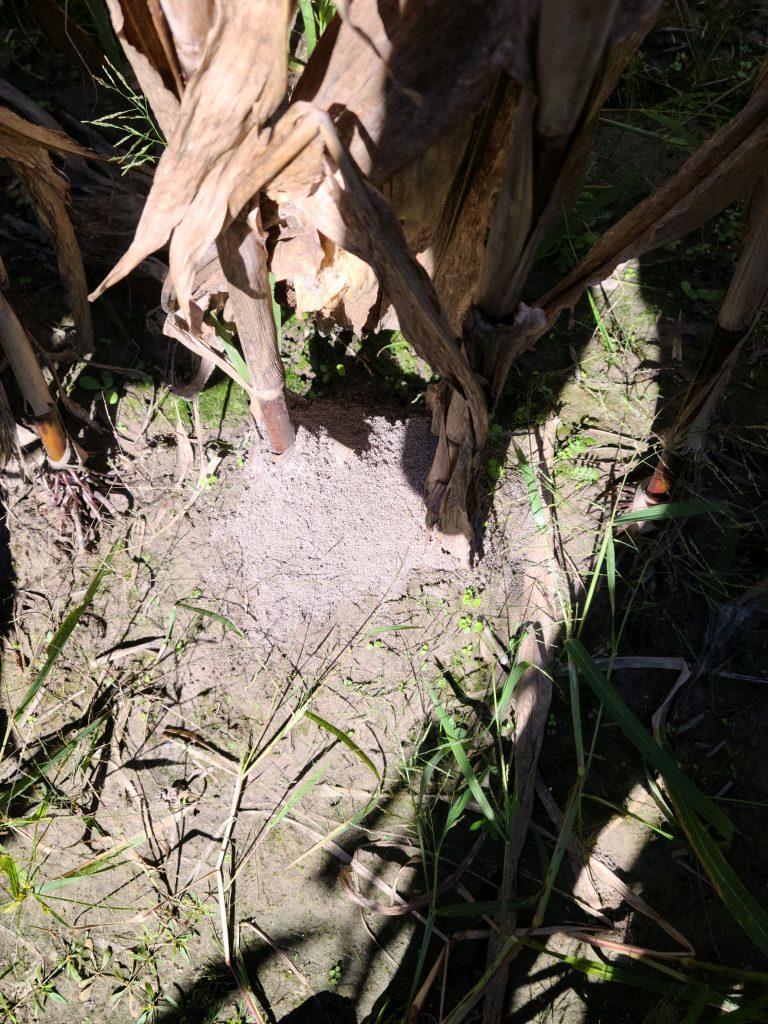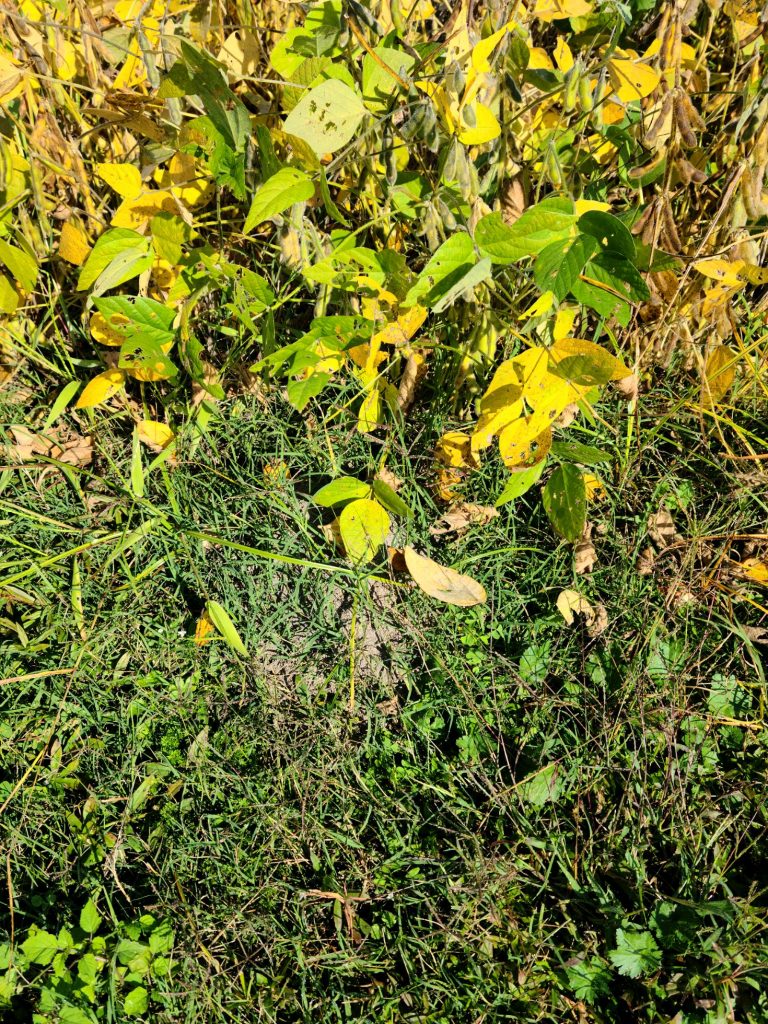
We have high numbers of fire ant mounds in our crop fields and around our farms this year. There have been some unfortunate encounters and this message is to make you aware of what these mounds look like and the potential for injury. Mounds look like large piles of loose dirt (keep in mind they have to start small at some point). They are often found around fence posts and mailboxes, but many are located in fields, pastures, and lawns. Field borders and paths are frequently infested. Fire ants sting, just like wasps and bees, and some people will be allergic and require medical interventions. People that are not allergic will have itchy, painful welts that often fill with fluid and may take days or a week or more to heal. Usually, you will have dozens or even hundreds of stings. This is because the swarm very fast and wait to sting all at once. Keep in mind that I have lived around them most of my adult life in North Carolina and we have come to accept them as part of our environment and have learned caution and awareness. I have been stung multiple times, usually once every few years, and usually when I am scouting crops. Be aware of where your feet are standing. Walk quickly when crossing a field because you can disturb them and get away without injury. Treatment options are below for mounds located near homes and barns. You do not want children or young animals near these things.

I would not attempt to clear your crop fields. A single acre can contain hundreds of mounds and millions of fire ants. Fire ants are predators and will eat caterpillars and other insect pests. They will not eat seeds and plants. Large mounds can damage equipment in rare cases. Products exist that can be applied to turf and lawns with year-long residuals (e.g., TopChoice). These products require a pesticide applicator license to purchase. Baits (e.g., Advion) are an alternative if you are not licensed to apply insecticides. These can be purchased online, many local retailers do not carry them yet. Surface treatments do not work because the colony can live very deep underground. Do not attempt to treat once the weather turns cold because it will not work. Wait until spring. Pray for a cold winter.
Be safe y’all and stay healthy. As always, reach out to me if you have questions or concerns. Keep in mind that I am NOT an urban or ornamental entomologist and I am NOT trying to sell you any specific product. FOLLOW THE LABEL WITH ANY INSECTICIDE.
